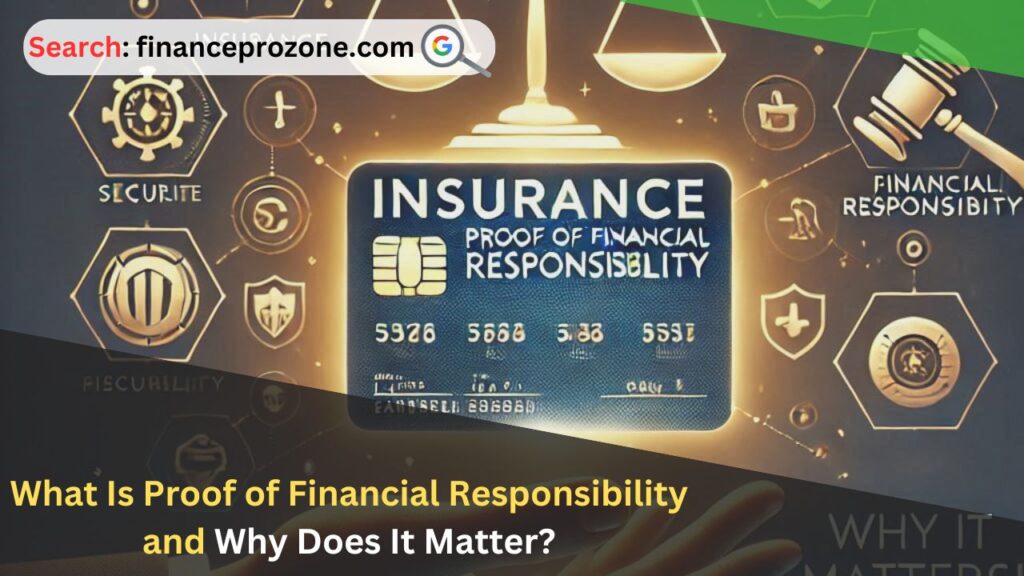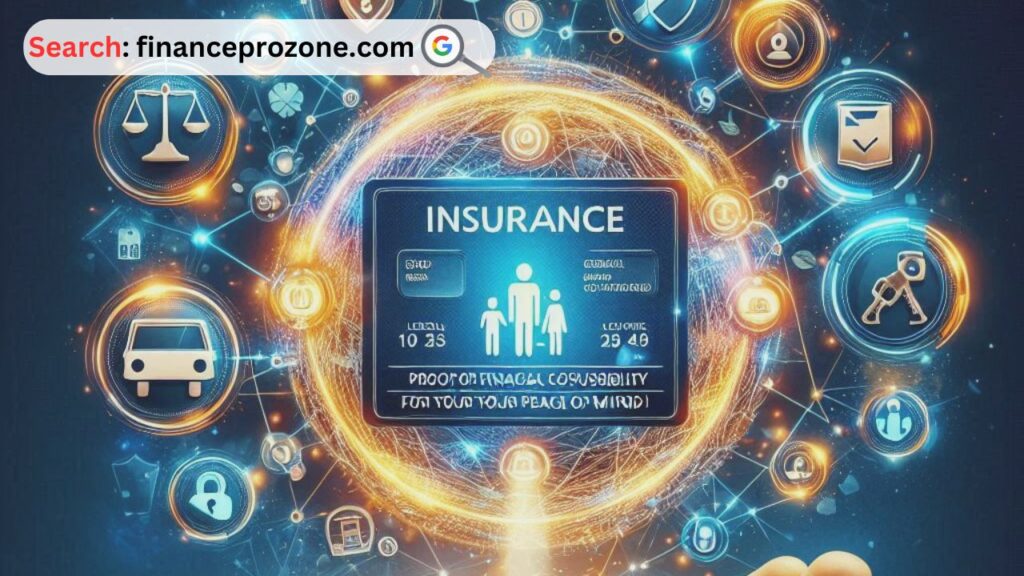What Is Proof of Financial Responsibility and Why Does It Matter?
Proof of financial responsibility is a formal demonstration that an individual or entity has the financial means to cover potential liabilities. It is often required by law in various contexts, such as driving, business operations, or fulfilling legal obligations. Ensuring you have adequate proof of financial responsibility is critical for compliance, financial security, and peace of mind.

Understanding Proof of Financial Responsibility
At its core, proof of financial responsibility serves as evidence that you can meet financial obligations, particularly in cases involving damages, injuries, or other liabilities. It is typically provided in the form of insurance, bonds, or other financial guarantees.
Common Forms of Proof:
- Insurance Policies: Liability, comprehensive, or other specific coverage.
- Surety Bonds: Financial guarantees provided by a third party.
- Deposits or Securities: Cash or other assets held by a regulatory agency.
- Certificates: Documents like SR-22 or FR-44, often required for high-risk drivers.
Why Does Proof of Financial Responsibility Matter?
1. Legal Compliance
Many jurisdictions require individuals and businesses to have proof of financial responsibility to operate vehicles, conduct certain activities, or meet legal requirements.
2. Financial Security
It ensures that you or your business can cover liabilities, reducing the risk of financial strain from unexpected events.
3. Protects Others
Proof of financial responsibility safeguards others who might suffer losses due to your actions, ensuring they receive compensation.
4. Avoids Penalties
Failure to provide proof can result in fines, license suspensions, or other penalties.
Key Scenarios Requiring Proof of Financial Responsibility
1. Driving a Vehicle
Most states or countries mandate that drivers carry minimum liability insurance to operate a vehicle legally.
Requirements Include:
- Proof of liability insurance.
- Filing an SR-22 or FR-44 in specific cases (e.g., for high-risk drivers).
- Alternative methods like surety bonds or cash deposits.
2. High-Risk Drivers
Individuals classified as high-risk due to past violations or accidents may need to file specific forms, such as an SR-22, to demonstrate financial responsibility.
3. Business Operations
Businesses in sectors like construction, transportation, or industries dealing with hazardous materials may need liability insurance or surety bonds to comply with regulations.
4. Legal Obligations
Court orders or bankruptcy proceedings might require proof of financial responsibility to ensure compliance and safeguard involved parties.

5. Rental or Lease Agreements
Landlords and leasing companies may require proof of financial responsibility to ensure tenants can cover damages or defaults.
Table: Common Scenarios and Proof Requirements
| Scenario | Required Proof | Common Methods |
|---|---|---|
| Driving a Vehicle | Liability Insurance | Insurance Policy, SR-22 |
| High-Risk Driver | SR-22 or FR-44 Filing | Through Insurance Provider |
| Business Operations | Liability Insurance, Bonds | Insurance Policy, Bond Documents |
| Legal Obligations | Court-Ordered Proof | Surety Bonds, Deposits |
| Rental Agreements | Renter’s or Lease Insurance | Insurance Certificate |
Benefits of Proof of Financial Responsibility
- Peace of Mind: Ensures preparedness for unforeseen circumstances.
- Faster Resolution: Streamlines the process of settling claims or disputes.
- Enhanced Credibility: Demonstrates reliability to stakeholders.
- Avoidance of Legal Issues: Protects against penalties and lawsuits.
Frequently Asked Questions (FAQ)
Q1: What counts as proof of financial responsibility?
A: Proof typically includes insurance policies, surety bonds, deposits, or certificates like SR-22 forms. Specific requirements vary by jurisdiction and situation.
Q2: When do I need proof of financial responsibility?
A: Common scenarios include registering a vehicle, renewing a driver’s license, after traffic violations, or when starting certain business activities.
Q3: What happens if I fail to provide proof?
A: Penalties can include fines, license suspensions, vehicle impoundment, or increased insurance premiums.
Q4: How can I obtain proof of financial responsibility?
A: Purchase the required insurance, file necessary forms (like SR-22), or provide alternative guarantees such as bonds or deposits.
Q5: Can proof of financial responsibility be revoked?
A: Yes, it can be revoked if insurance lapses, bonds are withdrawn, or financial conditions change. Maintaining compliance is essential.

Tips for Maintaining Proof of Financial Responsibility
- Understand Local Laws: Research requirements specific to your location and situation.
- Renew Coverage Promptly: Avoid gaps in coverage by renewing policies on time.
- Keep Documentation Accessible: Always have proof ready for emergencies or inspections.
- Monitor Policy Changes: Stay updated on changes in insurance terms or legal requirements.
- Consult Professionals: Seek advice from insurance agents or legal experts.
Inspirational Quote
“Financial responsibility is not just about compliance; it’s about creating a foundation of trust and security for yourself and others.” — Unknown
Conclusion
Proof of financial responsibility is a vital component of responsible financial and legal practices. Whether you are driving, operating a business, or meeting legal obligations, having appropriate proof ensures compliance, protects you and others, and avoids penalties. By staying informed and prepared, you can navigate these requirements confidently and responsibly.

